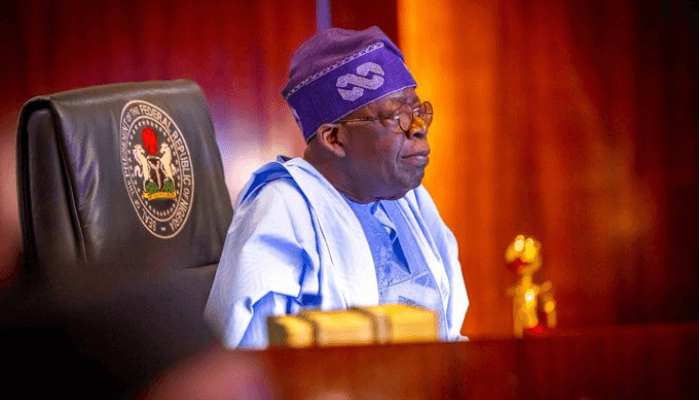On Mr President’s directive on NOUN graduands
During the 13th convocation of the National Open University of Nigeria (NOUN) recently held, President Bola Tinubu who is the visitor to the university gave two policy directives on status of graduates of the institution: That those within the age bracket of participating in the National Youth Service scheme who were hitherto denied participation should […]

During the 13th convocation of the National Open University of Nigeria (NOUN) recently held, President Bola Tinubu who is the visitor to the university gave two policy directives on status of graduates of the institution:
- That those within the age bracket of participating in the National Youth Service scheme who were hitherto denied participation should be allowed to take part.
- That Law graduates of the NOUN should be allowed to proceed to the Nigerian Law School so as to qualify as practicing legal persons.
While law graduates and other graduates are basking in the euphoria of these presidential directives as well as their parents, who have spent resources and time; we have to be cautious. But before long, we need to commend the president for the courageous decision, which has saved Nigeria from further ridicule and shame within the global community for failing to give enough recognition to NOUN graduates.
Commendable as the directive is, mention must be made on the albatross that worked against recognition of NOUN graduates; right from the time distance and open university education was conceived by the National Universities Commission (NUC) in the 1980s, something was amiss. It is regrettable that the commission embraced the system and yet bar the graduates from participating in the national youth service. The letters of exclusion given to these graduates by the National Youth Service Corps including those below thirty years (30) does not speak well of these graduates. How can a graduate below thirty years of age be excluded from the NYSC scheme? In other words, the issue of recognition for NOUN certificates debacle put to question recognition.
- Eminent northerners to Tinubu: Reject bid to site US, French bases in Nigeria
- World Press Freedom Day: No journalist incarcerated under Tinubu’s govt – Information minister
In a rare display of patriotism, President Shehu Shagari (of blessed memory) approved the take-off of the open university of Nigeria in 1983 but when his government was overthrown by the military at the end of that year, the system was truncated in April 1984, although many Nigerians who could not gain admission into the formal university had applied.
The academia was the most vocal opposers at the time even though they were well aware of the acceptance of Open University system globally. It should also be pointed out that no serious voice encouraged the military to continue with the policy, thereby dashing the hopes of many Nigerians.
The hope of many Nigerians again was rekindled for those having unquenchable desire for university education when the civil administration under Chief Olusegun Obasanjo resuscitated it in 2002 with all legal instruments in place. To demonstrate sincerity of purpose, Chief Olusegun Obasanjo not only campaigned for acceptance of the system, but personally enrolled into the degree program, and after graduating with a first degree, he proceeded up to PhD level.
Low and behold, the Nigerian nation could not be moved with enthusiasm to welcome the system except patronisers. This is like giving birth to a child but given haphazard recognition as a legitimate child. Realizing the gab, some Nigerian conventional universities used their academic independence to establish Satellite Campuses and engaged university lecturers to teach in these centres. But because of the negative outcry on the quality of these centres, the federal government bowed to pressure and abolished the centres, and directed students to continue their studies at the main campuses of these universities. The good in this however, is that some products of these centres are not only gainfully employed but some of them are now lecturers in our universities, with some of them attaining professorship.
The abolition of the satellite campuses and lack of adequate recognition to open university again shattered the dreams of many Nigerians who had then found the system as meeting their needs in their quest to further their education. One would be tempted to ask this question, are those in government, the academia or even the nation afraid of producing more university graduates if recognition is accorded Noun graduates?
To say the least, we have done more harm than good to the nation by denying NOUN graduates appropriate recognition. Before the president took the paradigm shift, the agony and pains these graduates went through, can best be imagined than expressed. One hopes that the usual bureaucratic bottle necks and frustration associated with policy implementation in Nigeria will not be allowed this time around.
Imagine how ludicrous it is for implementors to refuse to put into action previous Acts of parliament on distance education in Nigeria, the latest being the one passed by the Senate in 2018 recognizing the inclusion of graduates in the national youth service scheme and law school. With the previous disdain by those in the education sub sector, will they now obey President Tinubu’s directive? Perhaps, if powerful people and pressure groups had mounted pressure, these people would have not acted the way they did.
William W. Audu wrote via [email protected]
